The most frequently asked questions regarding Chinese Money and payments while you are traveling in China have to do with how much to bring (i.e. how much things cost), where to exchange, getting money from the ATMs, use of credit cards and now the widely adopted mobile payment apps in China: AliPay and WeChat Pay (Weixin Pay). We try to provide some answers here, but keep in mind that things change and develop quickly in China!
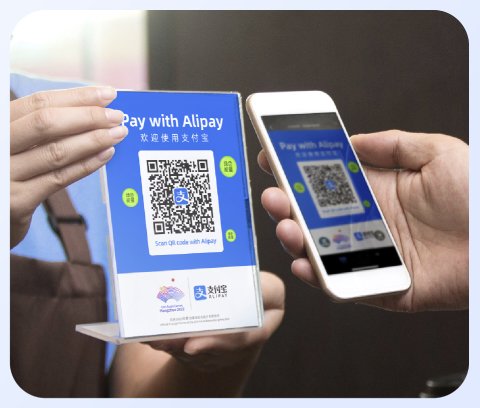
Merely a few years ago cash was king in China, credit cards were not widely accepted outside of hotels and shopping centers, but ATMs were everywhere and was one of the easiest ways to access local money for smaller expenditures. Fast forward a couple of years and payments have gone entirely cashless, and the widespread use of mobile phones and apps has allowed for easy access to not only payments but all sorts of services. You will see signs of China's main digital payment systems: Alipay and WeChat Pay and their corresponding QR codes literally everywhere in China, from luxury department stores to street vendors and markets. Adoption of these systems has been countrywide, you can spend an entire cashless holiday without ever seeing a bank note.
Here are some guidelines for the different payment methods while in China so you can decide what is more convenient to you.
Chinese Money and Payments FAQs

How much money should I bring?
One of the most frequently asked questions regarding money in China:
We have about 10-12 days for our China trip at the end of June/beginning of July. We are a family of 4 and we want to see and do as much as we can but we are also probably average spenders nothing too extravagant as far as eating, etc.
Can you give me some idea of about how much money is needed for an average trip of two weeks? I know it all depends on personal spending, but for hotel we will use a credit card I am sure, but for all else I would imagine we would pay in local currency.
I guess I just want to have an idea of costs of entering the zoo, a boat ride, or a museum. Are things comparable to the United States as far as cost? Thanks again so much for your wealth of information and your wisdom.
How much money to bring? China is considerably cheaper than the U.S., Shanghai and Beijing are probably the most expensive cities.
Prices are quoted in Yuan, ¥ or Renminbi, CNY. At the moment, one US$ equals approximately 7 Yuan. You can find out the exchange rate for your own currency below:
Bigger expenditures like hotels and plane tickets can be covered using a credit card. For smaller items such as attractions, activities, local transportation and food, this should give you an idea of how much things cost:
Cost of Attractions and Activities
For top tier attractions allow on average US$12 each per activity, some will be less, some a bit more. For example, entrance to:
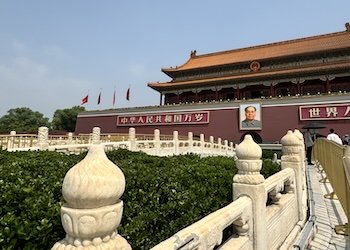
The Forbidden City in Beijing
CNY 60, around US$8.50
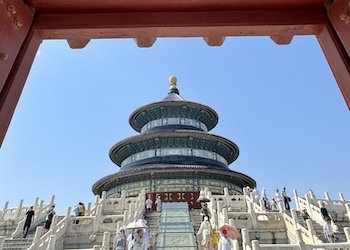
The Temple of Heaven in Beijing
CNY 34, around US$5
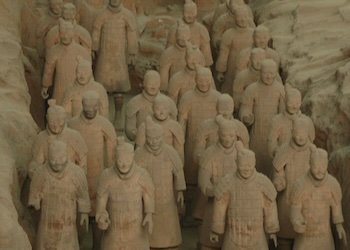
The Terracotta Warriors in Xian
CNY 120, around US$17

The Panda Research Base in Chengdu
CNY 55, around US$8
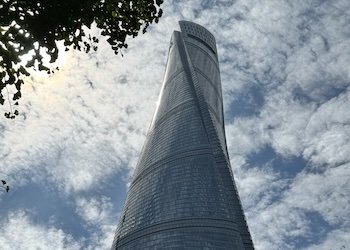
The Shanghai Tower Observation Deck
CNY 180, around US$25
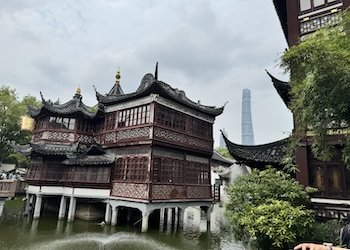
The YuYuan Gardens in Shanghai
CNY 40, around US$6
Entrance fees to smaller parks, temples or activities are minimal:
- Jingshan Park in Beijing - CNY 2, a few cents
- Jade Buddha Temple in Shanghai - CNY 20, around US$3
- Lama Temple in Beijing - CNY 12, around US$2
- Boat ride to the Summer Palace in Beijing - CNY 30, around US$4
- Admission to many top museums in China like the Shanghai Museum or the China Art Museum in Beijing is FREE to the public
Tips for buying tickets to attractions and activities:
- Seniors over 60 years old go free at China's National Parks and Museums or get substantial discounts. Simply go to the ticket counter and present your passport. At this time (mid-2024), some places were limiting this perk to Chinese citizens only, but there were no clear rules and we were able to enter free at many attractions like the Chengdu Giant Panda Research Base. It's a bit hit or miss but worth trying for some savings, just ask for a senior discount.
- If lines for entrance tickets are long, you can buy your tickets online through the AliPay or WeChat apps, most places will have signs where you can scan the QR codes, pay through the app and skip the line.
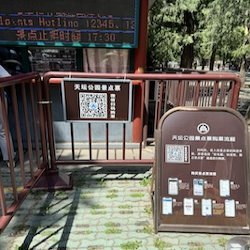
QR codes for purchasing tickets at entrance of Temple of Heaven - Same applies to shuttle buses, boat rides, etc. where you purchase your ticket before you board through the QR codes which will be displayed on the vehicles themselves or a sign near embarkation points.
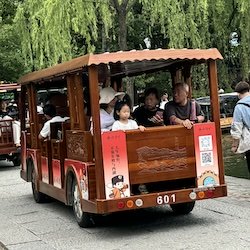
To board the shuttles at the West Lake first scan the QR code in the back to buy ticket - If you are visiting during a busy or holiday period, try to buy tickets in advance. Many attractions limit the number of daily visitors. This is true for most of the popular attractions, i.e. tickets for the Forbidden City WILL sell out a day or so in advance. Pre-booking window is normally around 7 days for most attractions. Check out the Klook.com site which offers skip-the-line tickets to most attractions in China at a discount.
Cost of Food
For food, with US$5-6 per person you will eat really well at local eateries and food courts. But like any other place, there is a great variety of food... and prices, from street vendors to fancy restaurants at international hotels where the prices will be similar to what you will find in the West. Here are some sample meal prices:

Dumplings and Veggies at small local eatery on Nanjing East Road Pedestrian zone in Shanghai
CNY 30, around US$4

Shrimp and Seafood Fried Noodles at the Food Court at Shanghai Tower
CNY 49, around US$7
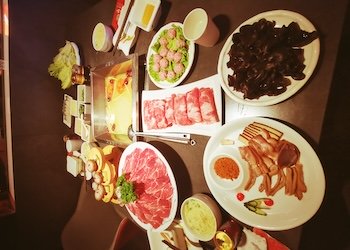
Sichuan Hot Pot for 4 in upscale Taikoo Li,
CNY 530, around US$75

Peking Duck feast carved at your table at popular local restaurant in Beijing
CNY 274 for 3, around US$38
Cost of Local Transportation
When it comes to transportation and getting around, China really excels in both efficiency and cost. Taxis and ride services are inexpensive, metro and buses even more so. A single ride in the Shanghai Metro for example is only a few cents, 3 Yuan per ride. Longer rides for example from Hongqiao Airport to the center of the city in Nanjing East Road is only 5 Yuan, not even US$1. In terms of infrastructure, this is one area that keeps improving by leaps and bounds with new metro lines and high-speed train lines being built every year.
If you will be taking a lot of metros and buses, considering getting the Mainland China Bus & Metro Card which is good for public transportation in more than hundreds of cities througout China including all the major ones: Beijing, Shanghai, Chengdu, Xian, Guangzhou, etc. It comes preloaded with a balance so you can start using it right away.
Taxis are also good value and specially if you have a small group, we found out that with 3 in our group it was just as economical as riding the metro.
Using Cash: Where to exchange and finding ATMs
So now that you have an idea of how much cash you might need for smaller expenditures, the easy answer to how much money to bring is probably not too much as there are ATM's everywhere, specially at airports, train and metro stations, most pedestrian areas and shopping centers.
Will your ATM from home work? It's always a good idea to notify your bank that you will be traveling overseas, so they don't block your card for "suspicious activity". You will be able to withdraw money from China's ATMs which support networks used by most major international financial institutions: VISA, Mastercard, Maestro, Cirrus, Plus, JCB, UnionPay, etc. The machines display the logos:
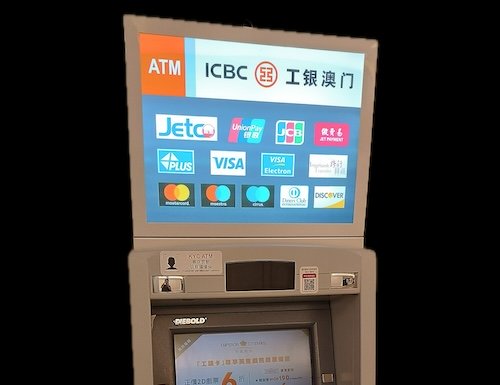
The amount that can be withdrawn depends on the network and your own bank limit, normally about the equivalent of US $400 or CNY 2,840
Where to exchange money? If you would like to exchange dollars, euros, etc. into Chinese Yuan, you can do so at the currency exchange counters at the airports, large shopping centers, some tourist spots and many major hotels (although you might not get a very favorable exchange rate)
Using Credit Cards in China
Credit Cards are accepted in China at hotels, restaurants, shopping centers, theme parks and major attractions, etc.
UnionPay is more widely accepted throughout China, all other major international credit cards are also accepted: Visa, Mastercard, American Express, Dinners Club, JCB.
You can link your international credit card to one of China's mobile wallets, either AliPay or WeChat Pay, see below, which are widely used EVERYWHERE.
Try using a credit card from a bank that does NOT charge a foreign transaction fee and remember to alert the bank that you will be traveling abroad so that your card is not blocked.
Using the mobile payment apps AliPay and WeChat Pay
Although cash and credit cards are still accepted, more and more people have switched to digital payments. In some areas this is the only way and getting change back if you are paying in cash might be a problem! It's a good idea to install one of China's digital wallets, either AliPay or WeChat Pay, rather than relying solely in cash.
WeChat Pay or Weixin as it is known in China, and Alipay are two of the most popular digital payment methods in China, and most people pay on those platforms using QR codes on their mobile phones.
At the beginning, it was difficult for foreigners to use the apps since they required access to a local bank account. Now it is possible to link an international credit card to use.
You can download it from your device's app store:
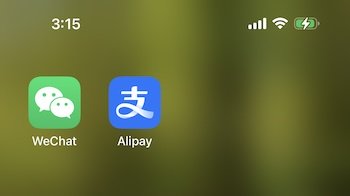
You will need to register with your mobile phone number and link a credit card, it is a very straightforward process and the apps will guide you with comprehensive instructions in English. Process is the same for both apps.
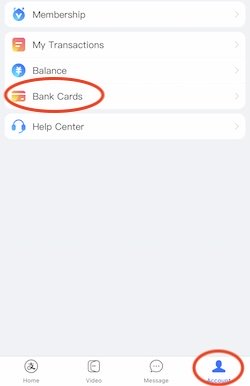
In the Account Profile section click on Bank Cards
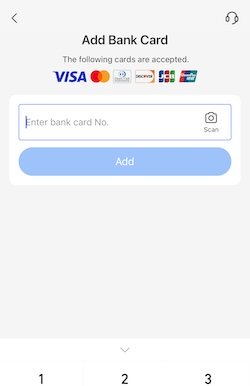
You can add you foreign credit card by entering the number or scanning the card
How to pay using WeChat Pay or AliPay?
Once you have the app installed on your phone you are ready to make payments!
There are two ways to make a payment:
- By scanning the merchant's QR code
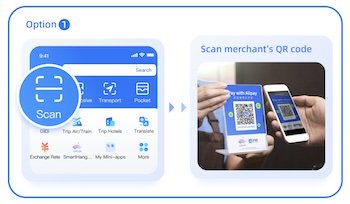
- Let the merchant scan your QR code

Again, try linking a credit card with no foreign transaction fees. When you are using these apps for small items that cost a few cents like a cone of ice cream, water at vending machines, an apple at the fruit stand, etc. these bank charges could be more than the items being purchased!
Practical Information for Your Trip to China
Most Popular Excursions
Book with confidence! Free cancellation: Cancel up to 24 hours in advance to receive a full refund


















Got a tip?
Got something to share? Let us know!